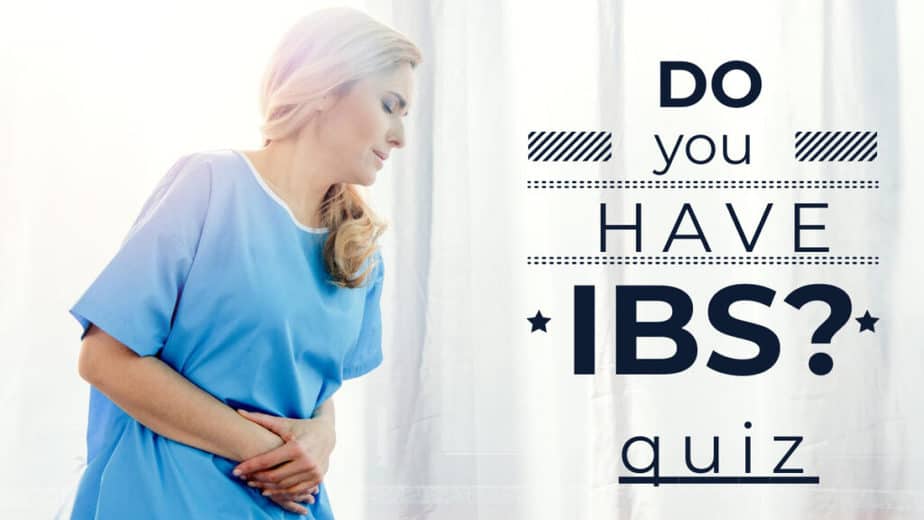Kombucha is a popular fermented tea touted for its gut-healing benefits, but is kombucha good for IBS? Is it beneficial for those suffering the debilitating effects of irritable bowel syndrome (IBS)?
IBS is a chronic gut-brain disorder affecting between 7 and 16 percent of Americans.The condition is marked by a group of gastrointestinal symptoms, including abdominal pain, bloating, gas, and diarrhea or constipation
Studies suggest that probiotics, including those that are naturally occurring in fermented food and drink, may help relieve the symptoms associated with IBS.
This is because they are thought to reduce inflammation in the gut, ease diarrhea, and enhance the absorption of nutrients.
However, while there are many known health benefits to consuming kombucha, in some patients with IBS, kombucha may also be a trigger.
Dive into the intricacies of kombucha’s impact on IBS and learn how to enjoy its benefits while sidestepping potential pitfalls
Kombucha and IBS – What are the Effects?
Kombucha, with its unique fermentation process, brings forth a myriad of effects on the gut. While its probiotic content can bolster gut health, certain components might not sit well with everyone.
Understanding these nuances is crucial for those with IBS, ensuring they can enjoy kombucha’s benefits without triggering symptoms
Kombucha is a lightly effervescent beverage that has been consumed for thousands of years.
It is made by fermenting tea and sugar with a starter culture of bacteria and yeasts, known as a SCOBY (Symbiotic Colony of Bacteria and Yeast).
The SCOBY essentially converts these simple ingredients into a carbonated beverage that contains these beneficial bacteria. For some people with IBS, kombucha may alleviate symptoms and improve bowel movement.
A recent study of constipation-predominant IBS patients who consumed kombucha products, enriched with a particular prebiotic known as inulin, experienced marked improvements.
These benefits included increased stool frequency and consistency. However, with all kombucha products, there is no hard-and-fast rule for IBS sufferers.
While scientists are still unclear on the exact cause of IBS, certain stressors and foods can trigger or exacerbate IBS symptoms.
These can include certain foods in the diet, stress, infection, and medication.
However, these triggers generally differ from one patient to the next, and IBS patients are often left to investigate their unique triggers.
Some ingredients in kombucha may be a possible trigger for IBS symptoms.
Our digestion relies on a healthy balance of various bacteria, found naturally in the gastrointestinal tract.
However, if an imbalance in these bacteria occurs, gastrointestinal disorders, including IBS, can manifest in the body.
According to a recent meta-analysis of more than 30 studies, probiotics may improve overall symptoms in patients with IBS. Prebiotics and probiotics can help to increase the healthy bacteria population in the gut.
Kombucha and Carbonation
Kombucha’s natural effervescence, while delightful to many, can be a double-edged sword for IBS sufferers. The carbonation, a byproduct of fermentation, might exacerbate bloating and discomfort in some.
It’s recommended that those suffering from IBS should avoid carbonated drinks, and thus should also avoid kombucha and its carbonation.
This is because carbonated beverages can cause gassiness and symptom flare-ups from the excess CO2 in the digestive system.
Kombucha and FODMAP Content
FODMAPs are a group of poorly digested sugars and fibers found in a wide variety of foods. Kombucha contains sugar and fiber that does not digest easily, so it can negatively affect those with IBS.
These include certain fruits, dairy products, legumes, high-fructose corn syrup wheat, and some grains as well.
For the majority of people, they generally don’t cause any issues. However, for people with IBS, these ingredients can cause digestive upset.
Because kombucha contains FODMAPs, some people sensitive to these sugars may experience symptom flare-ups.
FODMAPs produce gas when fermented by gut bacteria, which can cause excess gas and water, which may stretch the intestinal wall. Because people with IBS have highly sensitive guts, stretching can cause gassiness and pain.
Some IBS sufferers have turned to a low FODMAP diet to help them relieve symptoms. For one in four patients, this diet has been shown to improve digestive issues.
A low FODMAP diet has also been shown to be popular with people who have small intestinal bacterial overgrowth (SIBO).
Kombucha Sugar and Artificial Sweeteners
While sugar is essential for kombucha’s fermentation, excess sugar or the addition of artificial sweeteners can be problematic for IBS sufferers. It’s vital to choose kombucha varieties with minimal additives and be wary of those with high sugar content.
Some kombucha manufacturers add additional sugar, fruit, or artificial sweeteners to their drinks. For IBS sufferers, some sugars, such as fructose, can cause diarrhea.
To make kombucha, sugar is a necessary ingredient. Most of these sugars do get broken down during the fermentation process.
Other additives known to irritate the gut are artificial sweeteners such as mannitol and sorbitol, which may cause laxative effects.
Kombucha and Caffeine
Drinks with caffeine are known to cause laxative issues and stomach cramps because they stimulate the intestine to contract.
Since kombucha is often made with black or green tea, it can be considered a caffeinated beverage.
If caffeine causes problems for you, then kombucha may not be your drink of choice.
Kombucha and Alcohol
During the fermentation process, some alcohol is created in the kombucha. However, the level is quite low – at least for most commercial varieties. Home-brewed kombucha can sometimes contain higher alcohol content.
Like caffeine and sugar, alcohol is considered another trigger for IBS symptoms.
As alcohol is a common trigger for IBS sufferers, excess consumption may cause a laxative effect the following day.
With any kombucha products, patients with IBS should always read the label carefully in order to avoid those with higher contents of sugar, caffeine, or alcohol.
Kombucha and IBS Final Thoughts
Kombucha is a great addition to most people’s health regimens, but if you have IBS, you need to be more careful.
Kombucha provides many benefits including improving digestion, boosting immunity, reducing inflammation, and helping to maintain healthy skin. It is also an excellent source of probiotics, making it a good option for those looking to boost their gut flora.
However, if you suffer from IBS, you need to consider whether kombucha will aggravate your symptoms. Some people find that drinking kombucha triggers bloating, abdominal pain, and other uncomfortable side effects.
For more information on kombucha and other foods that may affect your IBS symptoms, check out these articles:
Kombucha and IBS FAQs
Can Kombucha Aggravate IBS?
Yes, kombucha can aggravate IBS symptoms in people. Even though kombucha is a beverage that’s better known for its health benefits, including gut-healing properties, some IBS patients may find that kombucha increases symptoms or causes flare-ups.
This may be due to many factors associated with IBS triggers, such as carbonation or its sugar, alcohol, or caffeine content.
Is Kombucha a Good Probiotic?
Yes, kombucha is a fermented tea that is rich in beneficial probiotics. It’s most known for aiding gut health and balancing bacteria in the gastrointestinal system. However, for some irritable bowel syndrome (IBS) patients, kombucha may aggravate negative symptoms.
How Much Kombucha Should I Drink for IBS?
6 ounces (177 ml) or less of kombucha daily is best for people who have IBS and still want to drink kombucha. Larger amounts may worsen IBS symptoms. For people with IBS who follow a low FODMAP diet, it’s best to try and avoid kombucha altogether.
Can Kombucha Help with Stomach Problems?
Yes, kombucha is a popular fermented drink that is best known for aiding and improving stomach problems and overall gut health. However, those suffering from irritable bowel syndrome (IBS) may find it aggravates their symptoms.
There is no hard-and-fast rule, as each patient’s triggers may be different.
Can Kombucha Cause Gut Problems?
For some patients with irritable bowel syndrome (IBS), or those who follow a low FODMAP diet, kombucha may irritate the gut and cause flare-ups.
This is due to the kombucha’s natural characteristics and specific ingredients incorporated, such as carbonation, sugar, caffeine, and alcohol.
Sources:
- https://jamanetwork.com/journals/jama/article-abstract/2776885
- https://www.health.harvard.edu/blog/probiotics-even-inactive-ones-may-relieve-ibs-symptoms-2020062220303
- https://www.healthline.com/health/kombucha-for-ibs
- https://www.monashfodmap.com/about-fodmap-and-ibs/
- https://pubmed.ncbi.nlm.nih.gov/25091148/
- https://www.health.harvard.edu/diseases-and-conditions/best-ways-to-battle-irritable-bowel-syndrome


